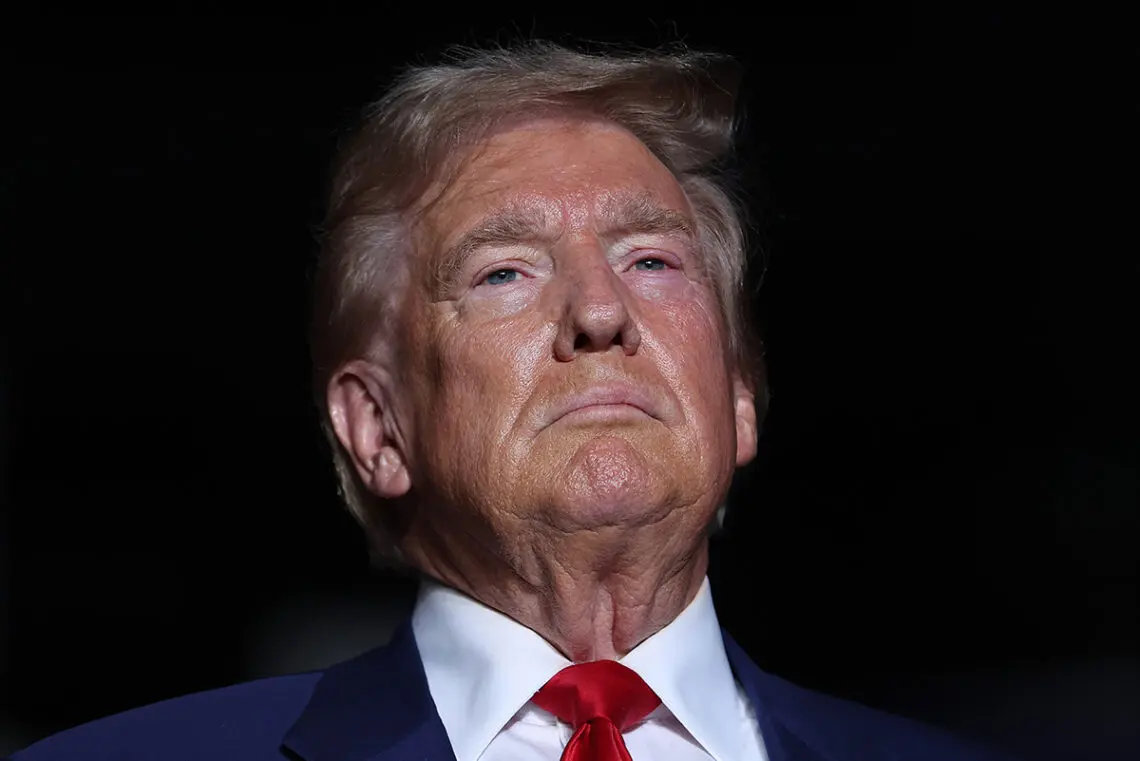Trump files $10 billion lawsuit against CBS News and ‘60 Minutes’
The lawsuit’s foundation
Donald Trump, the Republican presidential candidate, has set the stage for a dramatic legal battle by filing a $10 billion lawsuit against CBS News and the iconic program ‘60 Minutes.’ The central claim alleges that an interview with Vice President Kamala Harris was edited in a way that misled voters during the 2024 election campaign.
Disputed content in Harris interview
The lawsuit pinpoints a specific segment of the interview that aired on October 6. According to Trump’s legal team, an inarticulate response by Harris to a question about the ongoing Israel-Hamas conflict was omitted from the broadcast version. This response had been included in earlier previews aired on other CBS News programs, which Trump claims were intentionally altered to favor Harris. CBS News has firmly denied any such manipulation, arguing that the interview was presented fairly.
CBS News’s counter-statement
CBS News issued a robust defense against the allegations, stating that the lawsuit is “completely without merit.” They reiterated that ‘60 Minutes’ has a legacy of journalistic integrity and that the Harris interview was no exception. The network emphasized its commitment to presenting the news in an accurate and unbiased manner.
“False claims against ’60 Minutes’,” stated CBS News, reinforce the network’s confidence in its editorial standards.
The tangled web of media interactions
This legal move is not an isolated incident in Trump’s complicated relationship with the media. Over the years, Trump has frequently engaged with various established media outlets—sometimes clashing vehemently with networks like MSNBC, ABC News, CNN, and even Fox News Channel. His tactics have ranged from social media tirades to remarks during speeches and now, significant legal actions.
The technicalities of the lawsuit
Filed in the federal court of the Northern District of Texas, the lawsuit demands a jury trial, positioning the case as a high-stakes confrontation with potential ramifications that extend beyond the involved parties. In addition to CBS News, the suit may cast a long shadow over the journalistic practices prevalent in modern media organizations.
Analysis: The role of media in elections
Media coverage is pivotal in shaping public perception, especially during election periods. Whether through news broadcasts, interviews, or debates, the portrayal of candidates can significantly influence voter decisions. Allegations like those made by Trump underscore the critical role journalism plays in democratic processes.
COVID-19, economic upheavals, and global conflicts like the Israel-Hamas situation mentioned in the disputed interview, all contribute layers of complexity that the media must navigate carefully to maintain objectivity.
Historical context and past precedents
Trump’s history of confrontations with the media provides an intriguing backdrop to this latest lawsuit. His tenure as President showcased numerous instances where he accused media outlets of bias or misinformation. Legal experts often point to these confrontations as part of a broader strategy to mobilize his base by portraying himself as a victim of unfair coverage.
This current lawsuit, seeking a substantial sum, highlights an escalating effort to legally challenge the media’s role and its influence on public opinion. The high-profile nature of this case, combined with Trump’s background, sets the stage for a potentially landmark judicial decision.
Broader implications for media ethics
The ethical implications for journalism are significant. If Trump’s allegations were proven true, it would call into question the fundamental practices of editing and presenting interviews in news programs. Media organizations might need to re-examine their editorial policies to ensure transparency and fairness in their reporting processes.
Such a scenario reinforces the importance of embedding transparency within journalistic principles, ensuring that all edited segments and cuts are done with a clear, justifiable editorial intent rather than perceived bias.
The future of media lawsuits
Looking forward, the outcome of this lawsuit could set a precedent for how similar cases are handled in the future. Media entities may find themselves navigating an increasingly litigious landscape, especially as the lines between news and personal opinion continue to blur in the digital age.
This incident serves as a reminder of the delicate balance that media outlets must maintain: delivering timely and engaging content while upholding the ethical standards that underpin responsible journalism.
In a world where public figures and media entities are intertwined more than ever, the impact of such lawsuits extends far beyond the courtroom. They resonate with audiences, influence perceptions, and ultimately shape the narratives that define our times.
Stay tuned as this legal battle unfolds, revealing more about the intricate dynamics between public figures and the media.
For further updates on this topic and other trending news, follow our platform across social media channels.

 Italian
Italian







